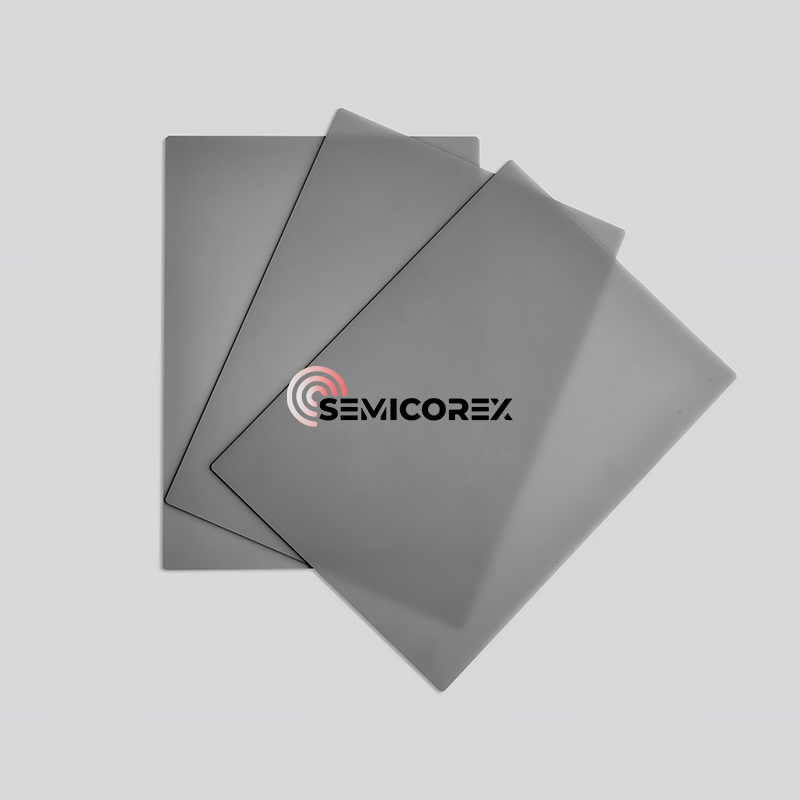
- English
- Español
- Português
- русский
- Français
- 日本語
- Deutsch
- tiếng Việt
- Italiano
- Nederlands
- ภาษาไทย
- Polski
- 한국어
- Svenska
- magyar
- Malay
- বাংলা ভাষার
- Dansk
- Suomi
- हिन्दी
- Pilipino
- Türkçe
- Gaeilge
- العربية
- Indonesia
- Norsk
- تمل
- český
- ελληνικά
- український
- Javanese
- فارسی
- தமிழ்
- తెలుగు
- नेपाली
- Burmese
- български
- ລາວ
- Latine
- Қазақша
- Euskal
- Azərbaycan
- Slovenský jazyk
- Македонски
- Lietuvos
- Eesti Keel
- Română
- Slovenski
- मराठी
- Srpski језик
How Ceramic Substrates Support Automotive Power Modules
The new energy vehicle industry is quickly advancing toward high-quality growth, becoming an eagerly awaited part of the global supply chain. The automotive power module acts as the "power center" of new energy vehicles, responsible for converting the battery's DC power into the AC needed to operate the motor. It also manages the motor's speed and torque, directly affecting the vehicle's performance and energy efficiency.
This process generates a lot of heat. Industry test data shows that the operating temperature of mainstream IGBT power chips can instantly rise above 150°C. If this heat isn't conducted away and dissipated efficiently, the module's performance will decline. In extreme cases, safety issues such as circuit shorts and device failure may occur. Therefore, the substrate's heat dissipation and environmental adaptability are crucial. Ceramic substrates offer unmatched technical advantages in automotive applications. Compared to traditional substrates, ceramic ones provide extremely high thermal conductivity, excellent high-temperature stability, and strong insulation and corrosion resistance.
Because of the demanding nature of automotive use, automotive ceramic substrates must meet higher technical standards than their industrial-grade counterparts. The main challenges are in three key areas: balancing performance parameters, controlling manufacturing precision, and verifying reliability:
1. Precise Balance of Performance Parameters
Automotive ceramic substrates need to harmonize thermal conductivity, mechanical strength, and thermal expansion.
2. Accurate Manufacturing Control
Producing automotive ceramic substrates involves several steps, including powder synthesis, molding, sintering, and metallization. Each step requires control at the millimeter or micron level.
3. Strict Reliability Testing System
Testing the Hot-Cold Cycle: Cycles between -40°C and 150°C more than 1,000 times to ensure no cracking or delaminating of the substrate; Shock and Vibration Testing: Using a simulated vehicle bump or impact, while withstanding accelerations of over 1,000G with no material degradation; Damp-Heat Aging Testing: Continuously cycling at 125°C and humidity levels of 85% for 5,000 hours to ensure the insulation performs.
Consequently, these testing measures provide significant practical barriers of entry to become an auto ceramic substrate supplier for domestic companies needing long-term technical development, and immediate equipment purchase.
Recently, domestic companies have ramped up R&D, and have quickly advanced towards domestic commercialization fatigue ceramic substrate technology, with reported breakthroughs. Additionally, they have successfully passed intensive testing by leading new energy vehicle manufacturers of their domestically developed silicon nitride ceramic substrates, successfully demonstrating equivalence on thermal cycling and vibration shock testing to Kyocera while offering a 20%-30% cost savings as well. These newly homologated substrates are being commercially produced with reported monthly shipments over 100,000 units. In summary, the advancements in domestic automotive ceramic substrate capabilities represent a significant industrial value, especially in the activities of the auto industry to reduce the manufacturing costs of new energy vehicles, strengthen the security of domestic industrial and supply chains, and reduce reliance on international sourcing of foundational core components, while elevated the high-quality growth of the industry in the future.
Semicorex offers high-quality ceramic products based on customers’ needs. If you have any inquiries or need additional details, please don't hesitate to get in touch with us.
Contact phone # +86-13567891907
Email: sales@semicorex.com





